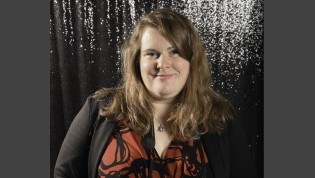This article on making the most of overseas conferences is written by Becky Zimmer who is based in Humboldt, Saskatchewan. She has experience in farm, community, small business and sports reporting.
As someone who has always wanted to travel, the fact that I am now able to go overseas for six wees for a conference as a freelancer is a blessing. But I will not ever assume to be so well-seasoned that I cannot learn from my best laid plans.
I went to Europe with a plan. Now that my Switzerland International Federation of Agricultural Journalists conference is over, I am taking some time to reflect on what I can improve for the next time.

How to make the most of an overseas conference as a freelancer
The best thing about trips like this is not just about what you learn at the conference itself, but the people you meet that make the conference special. Like I did before I left, I was constantly talking with the people in my network during and after the conference.This is one reason why my schedule was like wet sand—I didn’t know who was available and where I could potentially go and that’s was by design.
I wanted my colleagues from the British Guild of Agricultural Journalists to hook me up with their colleagues at a moment’s notice.
I wanted someone I just met to suggest cool places to see.
I had five days in Devon with a colleague graciously throwing farmers at me left and right. She also tipped me off to a press tour in Edinburgh, where I was able to have supper with a different colleague. Then there was a trip to Northern Ireland and Ireland where two colleagues showed me the ropes of their work within the ag sector—one as a reporter in Belfast and another as a researcher at the University College Dublin.
I’ve realized I’m the worst at just being a tourist, but having local friends to show me cool places and introduce me to interesting people has been the best part of this journey.
Unfortunately, the list of amazing people to talk to got a little overwhelming and it was impossible not to leave people floundering in the throes of my inbox.
However, I know they will understand that organizing yourself after a big conference is both a joy and a pain.
Now that I’m heading home, I’m looking forward to the prospect of helping someone else when they come to Canada.
Tip 1: Be flexible
One of my other plans was to focus on different agriculture topics. I picked five areas I wanted to look into, including topics like rural reporting and community news in different countries, as well as waste reduction or reusability strategies in the ag sector.As someone who already takes on too much I should have known that this was a far greater workload than I was able to tackle during and after the conference.
Out of all the stories I pitched to editors, only half fit these were subject goals I set for myself while the others were stories of opportunity that have ended up being financially beneficial with much of the work already done during conference tours, for example, interviewing, photos and Q&A sessions.
Next time, I will try to narrow that focus more, but the joy of freelancing is being able to tackle any story that peaks your interest.
Tip 2: Be kind to yourself
How do you work best?Is a busy reception desk in Belfast with your headphones on the way to go?
Do you need a silent library reading room at the National Library of Scotland to get some editing done?
Can you edit photos as your laptop balances precariously on a train tray table?
You may have to fight for every scrap of work time you get, but set that schedule for yourself, find a place where you can be productive, set your goals for success and go.
On the flip side, enjoy your time of just being a tourist. When you’re touring the Scottish Highlands and reminding yourself that your husband said no touching weird rock formations, looking up at Big Ben from the top of a bus and wondering how much gold he’s made out of or watching Swiss cows graze at 3,000 metres above sea level, don’t take away from the experience by answering emails or arranging meetings with clients.
Let yourself just be in that moment.
That said, keep a notebook handy for potential blog ideas and your camera ready for those inspirational shots that could get your fingers flying later. Write the note, take the picture and then go back to enjoying yourself.
Tip 3: Schedule breaks
Travel isn’t always fun and comfortable. It can be exhausting and painful and you need to give yourself time to recover from that. No work, no tours, no day trips, just time in bed with Netflix and takeout. The only must-have for any well-deserved break is acceptance. Keep the guilt away and let yourself enjoy your Outlander and Thai food in peace.There is far too much to see and do in one lifetime, let alone a single six-week trip.
Don’t ever beat yourself up for not doing everything you set out to do.
Don’t ever feel like you haven’t done enough.
Have you travelled overseas for a conference and tacked on a vacation? What are your tips for making the most of it?
Next Post: Webinar: Working the Conference Circuit
Previous Post: Webinar: Practical Use Cases For AI
Search
Recent Posts





